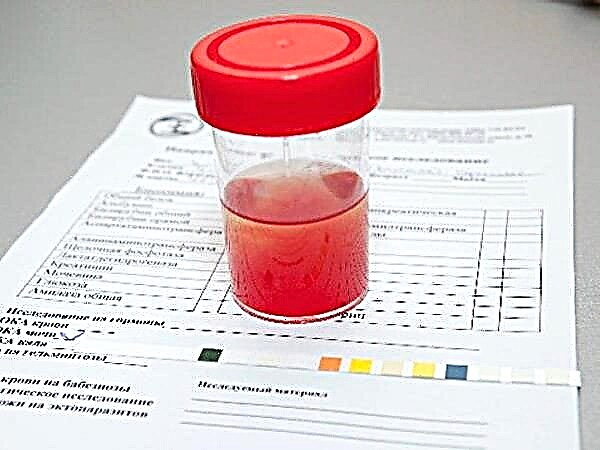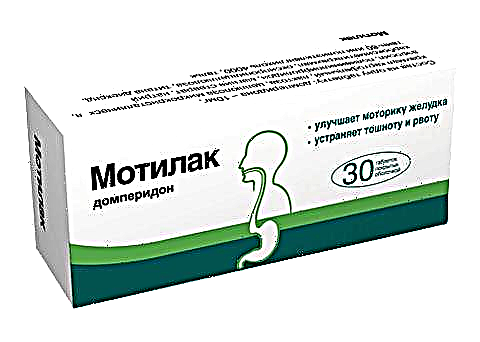
The last weeks and days of pregnancy are pretty grueling. The woman is noticeably tired and is already dreaming of giving birth as soon as possible. It is in these last days that questions arise about how you can speed up labor. Demand creates supply, and therefore the all-knowing Internet is always ready to offer a pregnant woman several ways to trigger contractions. In this article we will tell you how to do it, and when it is not forbidden to do it.

When do contractions start?
Contractions are the culmination of a long preparatory period that takes place in a woman's body in the last days before childbirth. By itself, the uterus cannot contract. In order for contractions to appear and cervical dilatation to begin, a sufficiently large amount of a special protein actomyosin must accumulate in myocytes (cells of uterine tissue), which gives the cells the ability to contract.
The contractions themselves are triggered by the hormone oxytocin, which begins to be actively produced in late pregnancy by the placenta and pituitary gland. And the level of progesterone, which was responsible for prolonging gestation, maintaining pregnancy, should fall to critically low values. The cervix must mature, and the special enzymes secreted by the cervix must thin the membranes so that they burst at the right time and the amniotic fluid can leave.

Only when all these conditions coincide, a full-fledged timely labor activity begins. During contractions, the neck gradually opens until the opening becomes maximum and reaches 10-12 centimeters. Then the baby can begin to be born with a full understanding of the word.
There are no uniform requirements for the completion of all this multi-component preparation. Each individual woman, taking into account her personal characteristics, the body can prepare for childbirth in due time. The estimated date of birth, which is listed in the exchange card, is nothing more than an approximate guideline. Therefore, childbirth is considered normal, which began in the period from 38 to 42 weeks.

Should I call?
At 39-40 and 40-41 weeks, a woman should not have grounds for concern. If a pregnant woman at this stage turns to a doctor with a request to stimulate labor with medicines, she will not be understood and the request will not be fulfilled. In order for generic activity to be complete, all stages of internal preparation for them must be completed naturally. Stimulation with medicines in a maternity hospital takes place only with a post-term pregnancy, after 42 weeks of pregnancy.
From the same position, doctors consider it inappropriate to try to speed up the process of onset of labor at home. The fact that the expectant mother is very tired of wearing her precious child, the fact that it is getting harder and harder for her to walk, sit, sleep, is understandable and arouses sympathy. But giving birth on time, provided by nature for a particular woman and her baby, is the most optimal solution to the problem.
As you know, the ability to wait is one of the most difficult, and therefore the impatience of women and attempts to actively provoke childbirth can also be understood, but you can hardly approve.

Before doing anything from grandmother's advice or advice from the Internet, a woman must be sure that she has no contraindications. The child should be positioned in the uterus correctly, in a cephalic presentation.
There should be no placental abruption, even in anamnesis at an early stage. The fetal bladder should be intact, no water leakage should occur. A woman's blood pressure should be normal, the hormonal level is sufficient for labor to proceed normally. Agree, not a single pregnant woman can say with confidence that all these conditions in her body are met.
Therefore, any home stimulation of labor is considered dangerous, risky and further increases the likelihood of complications during childbirth.

Non-medical methods
Looking at the suffering of a tired pregnant woman, relatives usually begin to give a lot of advice that should accelerate, provoke the onset of labor. These popular councils are passed down from generation to generation and have changed little over the past decades. What are they based on and does it really work? Let's try to answer this question.
"Move more, lift weights"
This advice is pretty dangerous. Indeed, physical activity contributes to the preparation of the body for childbirth, but it cannot accelerate its onset, since it does not in any way affect the hormonal background of the pregnant woman. Moderate physical activity is beneficial primarily because the woman's muscle tissue, ligaments, tendons are in constant good tone, which facilitates the process of childbirth. When moving, the blood supply to organs and tissues improves, which is also a good preparation for the birth of a child.
Some take the advice too literally and in the last few terms begin to actively rearrange furniture, move a wardrobe or a piano to the next room. It should be noted that in fact this does not speed up labor in any way, but it can cause premature rupture of amniotic fluid, placental abruption and the development of bleeding. Both of these situations will not bring childbirth closer, although with a high degree of probability a woman will undergo a cesarean section with early discharge of water, if contractions do not appear within a day, and with placental abruption, an emergency cesarean section is always performed. It will become deadly for a baby to remain in the womb. Have you dreamed of such a birth?


Then you need to take advice wisely. As physical activity, yoga classes for pregnant women are suitable (if she has practiced them before), light and easy cleaning in the house without bending or squatting, walking up the stairs "sideways" (very dosed). Remember, this only keeps you in shape, but does not bring the birth closer.
"Swim in the hot tub, swim in the pool"
Swimming and water procedures in general are very beneficial for a pregnant woman. Finding a body, the weight of which has noticeably increased, in water helps relieve fatigue from the legs, back, lower back. The pains typical of late periods from water temporarily calm down, the condition improves, the mood rises.
Bathing in hot water enhances blood flow to the skin and organs. How can this be dangerous for the expectant mother? Problems with the placenta, placental infarction, its detachment are not excluded. A rush of blood to the genitals, if you lie in a hot bath, increases vaginal secretion, which can indirectly affect the development of infection, and this is highly undesirable in the last days before childbirth. That is why a woman is advised to take a warm shower at a later date, and not fill the bath with hot water.
Especially dangerous can be water procedures and swimming in the pool after the mucous plug comes off... Even if the discharge has just begun to change, and the cork comes off in parts, the risk of infection of the fetus with bacteria, viruses and fungi through the cervical canal that is free for passage is high. Swimming and taking a bath after the plug comes out is not recommended at all.


In general, bathing in a warm shower effectively relaxes muscles and ligaments, which, of course, has a positive effect on the preparation of the cervix for childbirth (it is also a muscle). But it will not work quickly to induce labor in this way.
"Have more sex"
This method is popularly called "muzherapy". She has a very pronounced effect, but primarily on the future father. He will definitely like such treatment. As for the prospect of stimulating contractions, then everything is not so rosy. Sperm do contain prostaglandins. These substances, getting into the genital tract of a woman, really contribute to the relaxation and softening of the cervix. But sex, alas, does not affect the hormonal background and the ratio of oxytocin and progesterone in the body.
If there are no contraindications to intimate pleasures, a woman can practice this method. It gives pleasant sensations, improves mood, promotes relaxation. The method is not suitable if:
- the mucous plug has moved away or began to recede;
- the placenta is low, according to ultrasound;
- multiple pregnancy;
- pregnancy after IVF.
In these cases, not only sexual intercourse is contraindicated, but also self-satisfaction.

There may be individual reasons why the obstetrician-gynecologist prohibits having sex at a later date. Check with your doctor.
"Massage the nipples"
Good advice, as gentle nipple massage stimulates oxytocin production. If labor is delayed only because of his lack of concentration, it can really help to stimulate the onset of labor on its own.
If the reasons are different, then the massage will not have any significant effect.

"Drink cumin oil and eat raspberries"
Foods that are credited with rhodostimulating properties include cumin oil, raspberries, and seasonal vegetables and fruits. First of all, it is recommended to eat something that contains a lot of fiber. The advice is completely harmless and very practical. A large amount of fiber promotes mild natural relaxation of the intestines, is the prevention of constipation. A crowded bowel puts pressure on the uterus. For the beginning of labor, it is best if the intestines are not full.


There is, of course, no convincing evidence of the effect of foods on prenatal labor. But eating right with vegetables and fruits will definitely not hurt.
"Take a laxative"
To start the contractions, the folk "wise men" recommend doing enemas and taking castor oil or other laxatives. This is not necessary because bowel movements do not affect uterine contractility. Contractions of the intestine and the female reproductive organ are "controlled" by different hormones.
Bowel cleansing usually occurs naturally before childbirth, the body, a few days before giving birth, begins to get rid of "excess" itself.

The diarrhea may be over-stimulated and dehydration will begin. Multiple enemas lead to intestinal dysbiosis, since beneficial flora is "washed out" from the intestines. An imbalance in the intestinal flora is not the best accompaniment to childbirth and the recovery process after them.
Conclusions
Exercise, warm water, gentle sex, and other methods can be both beneficial and dangerous. If there is no more strength to endure, a woman does not need to be ashamed of her desire to give birth faster. But you definitely need to talk about this with the gynecologist who monitors the pregnancy. Any attempts to stimulate childbirth on their own at home can harm the child if there are contraindications.
Attempts to stimulate labor on their own at home with the help of medicines are especially dangerous. There are expectant mothers who inject oxytocin into the buttock by themselves, use vaginal creams with hormones. This is deadly, since stimulation of labor with medicines should be carried out only in a maternity hospital, where the dosage, the method of administration will be carefully calculated, as well as the state and changes in the well-being of the woman in labor will be monitored by specialists.

Patient waiting is best until week 42. After that, if childbirth does not occur, doctors will help the woman. Home attempts to bring the long-awaited moment closer is not the best choice for a woman who wants to give birth to a full-term, healthy and strong baby.
For information on how to induce labor, see the next video.



